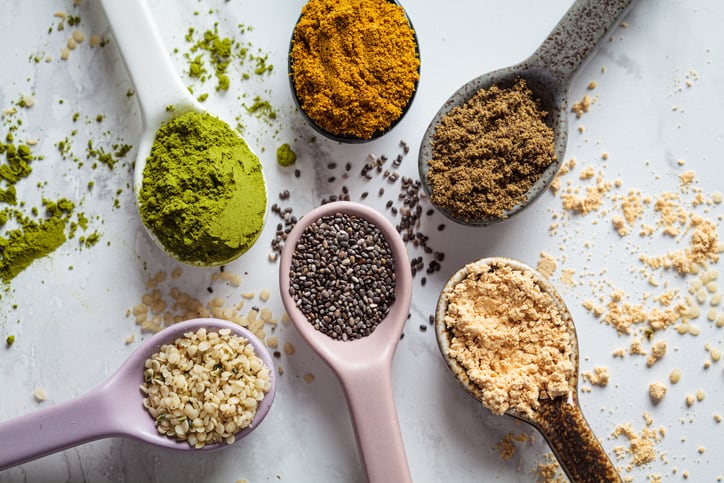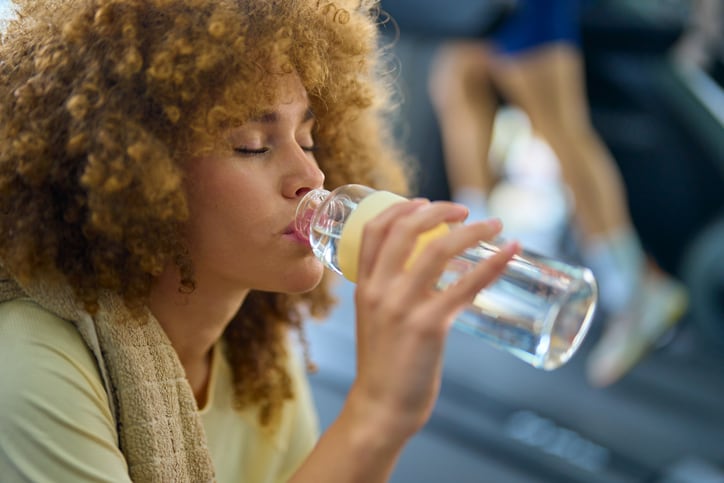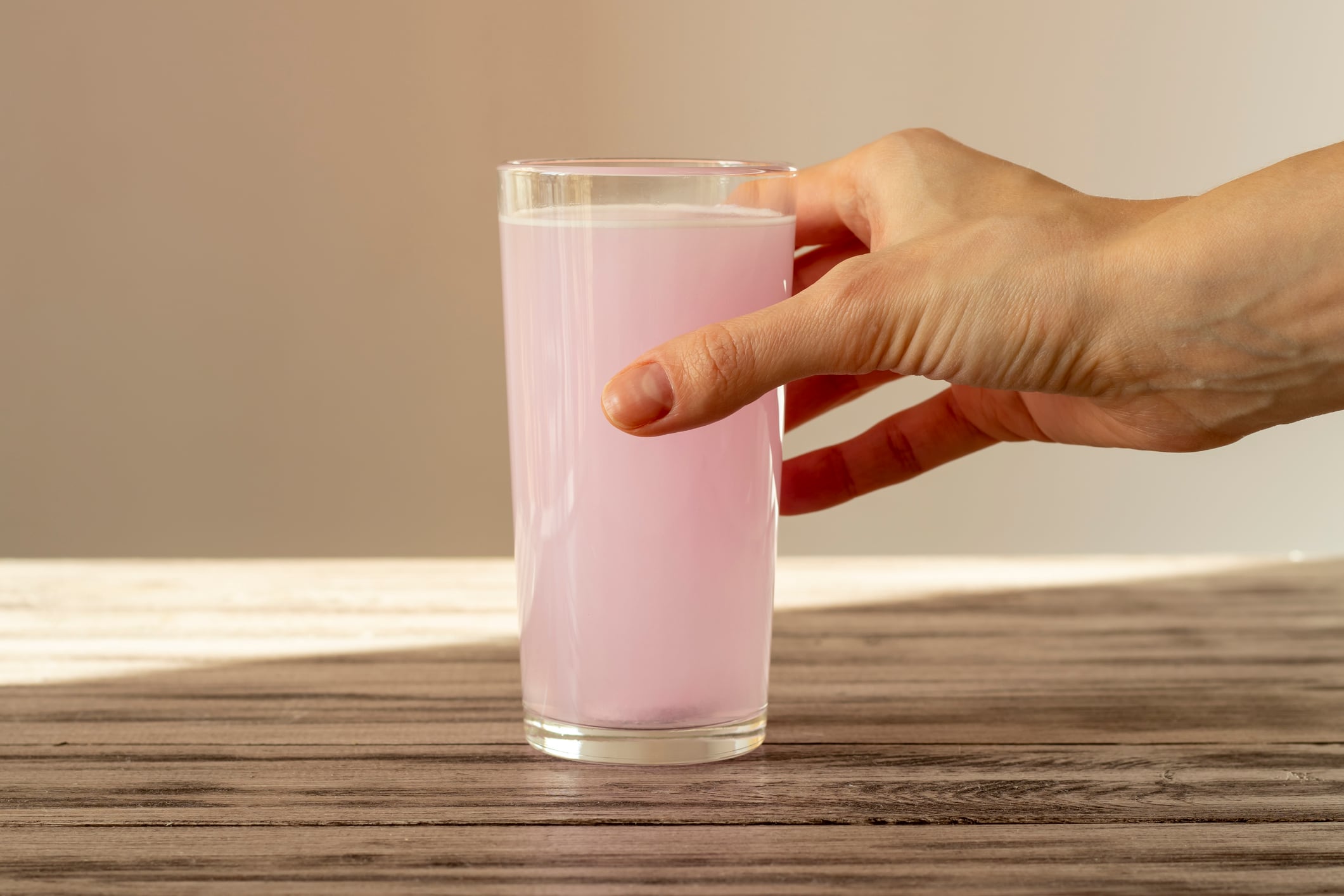Whereas functional ingredients might have once been sourced synthetically for bulk and price (think caffeine or taurine), today’s consumers are much more discerning.
Already nature’s medicine cabinet, plants also come with a powerful punch when it comes to functionality. So today, it’s all about maxing what opportunities plants can provide.
Functional beverages: market data
The global functional beverages market is projected to grow from $149.75bn in 2024 to $248.51bn by 2030, at a healthy CAGR of 8.9% from 2025 to 2030, according to data from Grand View Research.
“Plant-based innovations are taking center stage in the global beverage market, especially within the flourishing functional beverages category,” said Swapnil Bodhe of Grand View Research.
“Functional beverages with plant-based ingredients are no longer niche products limited to wellness shelves. They are now influencing mainstream consumer choices like convenience stores, cafés, and online carts.
“In 2025, the consumer focus is clear: they want drinks that support personal health and reflect broader values like clean labels, sustainability, and plant-based nutrition, including amino acids, minerals, and essential vitamins.”
Plant push
Plant-based functional beverages tap into a trio of consumer characteristics: health consciousness, lifestyle shifts and a demand for ingredient transparency.
“Modern consumers are reading labels with intent, gravitating toward ingredients they recognize, trust, and associate themselves with beverages that offer real health benefits,” said Bodhe.
“From adaptogens to probiotics and plant proteins, these drinks promise benefits like better digestion, enhanced focus, immunity support, and energy, without any artificial additives or animal-based components.”
Then there’s increased interest and adoption of vegan and flexitarian diet, meaning a vegan claim on a product can have substantial weight. Other consumers are lactose intolerant or simply prefer to avoid dairy.
Then there’s increased interest in natural ingredients and ancient remedies.
And there’s also the sustainability angle: with consumers concerned about planetary health and sustainable sourcing.
And natural ingredients are safely positioned away from concerns about artificial ingredients, colors and ultra-processed foods.
Functional beverage global growth
North America continues to lead the global functional beverages market with a share of over 37% in 2024, according to Grand View Re search.
However, Asia Pacific is rapidly gaining ground, fueled by growing health awareness, rising income levels, and a strong cultural foundation in herbal and natural remedies.
Plant-based trends to watch in 2025
1. Botanical and herbal infusions
Beverages made with herbs, flowers, and spices such as hibiscus, turmeric, ginger, chamomile, and lavender are drawing interest for their antioxidant and calming properties. These ingredients are familiar, flavorful, and functional.
“For instance, brands such as Sunwink and Aura Bora are leading the way with sparkling tonics and herbal waters that support mood and immunity," said Bodhe. “These drinks resonate with consumers looking for both wellness and taste.”
2.Rise of adaptogens and functional mushrooms
Stress is a global concern.
“Consumers are turning to plant-based solutions like ashwagandha, reishi (Lingzhi), and lion’s mane to manage it,” said Bodhe. “These adaptogens and nootropics are showing up in everything from sparkling waters to coffee alternatives.
“According to trend reports, Gen Z is increasingly swapping coffee and alcohol for mushroom-based shots, teas, and tonics that offer mental clarity and calm energy. It’s a subtle change that reflects the modern consumer’s wish for improved balance.”
3.Prebiotic sodas and gut-friendly alternatives
Many consumers are concerned about gut health, and as a result, plant-based ingredients are playing a big role in this area.
“New-age sodas made with prebiotic fiber (such as inulin or fruit-based fibers) offer a tasty alternative to traditional sugary drinks,” said Bodhe.
“For instance, Olipop, Poppi, and Culture Pop are some of the leading brands in this category, often known for combining fun flavors with wellness claims such as digestive support. Supermarket & hypermarket chains, including Walmart, are now carving out dedicated shelf space for these “functional sodas.”
4.Growing popularity of plant-based protein drinks
As more consumers look for convenient sources of nutrition, drinks enriched with plant proteins (like pea, pumpkin seed, or rice protein) are gaining momentum.
“Whether it’s a protein water, shake, or coffee blend, these beverages are attracting fitness enthusiasts and weight-conscious individuals,” said Bodhe.
The rise of plant-based functional beverages is also riding the wave of the “Ozempic effect,” a growing consumer preference for high-protein, low-sugar options that promote satiety and metabolic health. These beverages cater to wellness-focused consumers looking for clean, nutrient-rich formulations that align with their weight management and longevity goals."
5.Natural energy from plant sources
There’s a growing shift from synthetic caffeine to natural energy boosters.
“Ingredients like yerba mate, green tea, matcha and guayusa provide a gentler energy lift, paired with antioxidants and other health benefits,” said Bodhe. “It’s caffeine, but cleaner and more aligned with the wellness movement.
“And sustainability matters more than ever! Plant-based beverages are not just a healthier option for people, but are often better for our planet too. From using fewer resources in farming to reducing carbon footprints, plant-based beverages help brands communicate their sustainability stories.
Strategic takeaways for beverage leaders
What’s more, plant-based functional beverage trends fit neatly with other consumer trends and business priorities.
“For functional beverage brands, 2025 can be a pivotal year for aligning brand values with plant-based drinks to serve the evolving consumer expectations,” said Bodhe. “Strategic investments in recyclable and compostable packaging, ethically sourced ingredients, and transparent supply chains are becoming competitive necessities. As more buyers prioritize purpose-driven purchasing, brands that lead with authenticity and sustainability will be better positioned to build long-term loyalty and market advantage.”
Top tips
Here’s what industry players should keep in mind:
- R&D teams should prioritize clean-label formulations using functional botanicals and emerging plant-based ingredients.
- Marketers must communicate benefits clearly, avoid overpromising, and lean into storytelling that reflects authenticity and transparency.
- Retailers should explore dedicated shelf space or in-store signage for functional plant-based beverages as the demand is likely to grow soon.
- Investors and brand strategists should keep an eye on early-stage brands and consumer-driven product formats, especially those focusing on gut health, mental wellness, and sustainability.
“As the functional beverage market continues to grow, plant-based trends remain at its heart.
“From gut-friendly sodas to stress-relief elixirs and protein-packed shakes, the potential for innovation is vast, and consumer demand is real. Marketers and brands must recognize that today’s consumers aren’t just asking, “What does this drink taste like?” They’re also asking, “What health benefits does it offer me?” and “Where does it come from?”
“Companies that can answer these questions with transparency, purpose, and credibility are well-positioned to lead in this evolving space. The future of functional beverages looks incredibly promising.”



